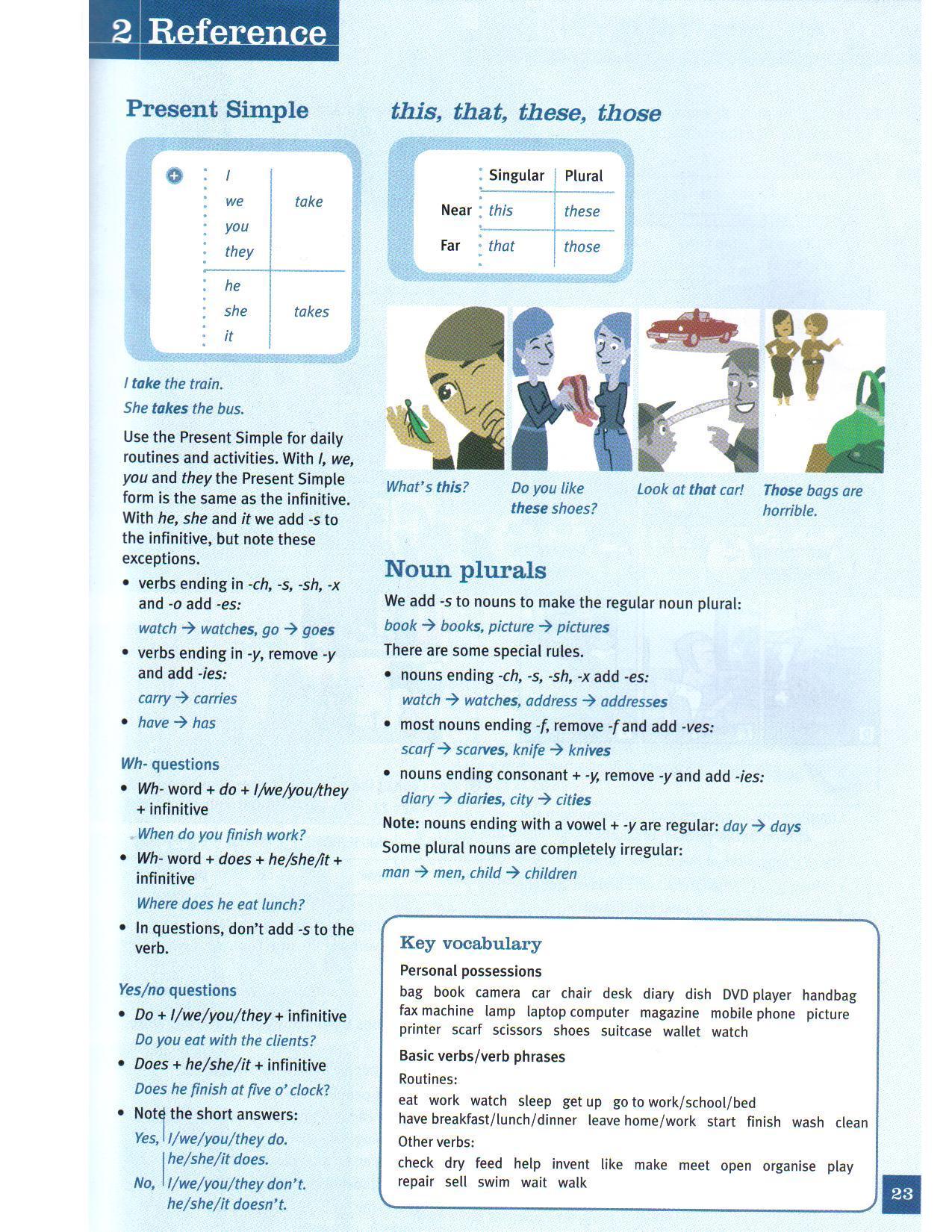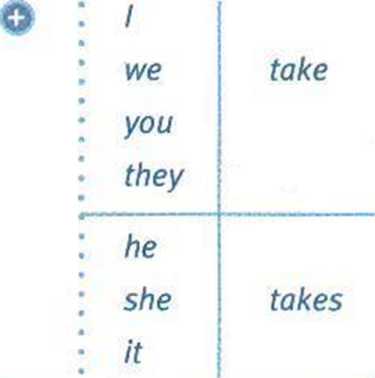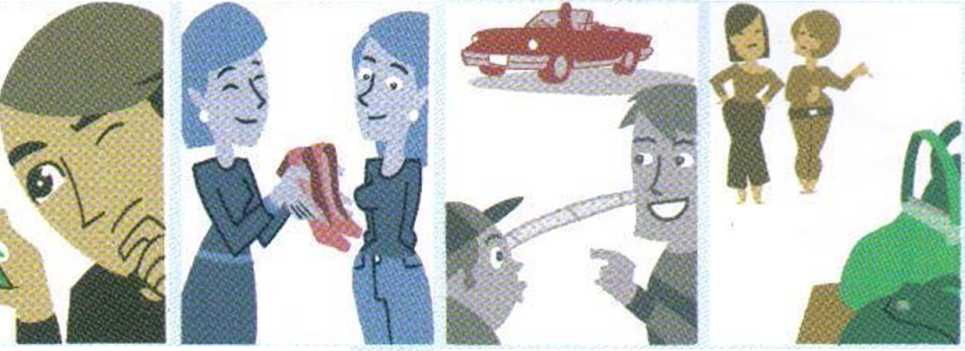strona# (15)



|
Singular |
Plural | |
|
Near |
this |
these |
|
Far |
that |
those |
I take the train.
She takes the bus.
Use the Present Simple for daily routines and activities. With I, we, you and they the Present Simple form is the same as the infinitive. With he, she and it we add -s to the infinitive, but notę these exceptions.
• verbs ending in -ch, -s, -sh, -x and -o add -es:
watch -> watches, go -> goes
• verbs ending in -y, remove -y and add -ies:
carry -> carries
• have -> has
Wh- questions
• Wh- word + do + l/we/you/they + infinitive
When do you finish work?
• Wh- word + does + he/she/it + infinitive
Where does he eat lunch?
• In questions, don’t add-sto the verb.

Look at that car! Those bags are
horrible.
We add -s to nouns to make the regular noun plural:
book -> books, picture -> pictures
There are some special rules.
• nouns ending -ch, -s, -sh, -x add -es: watch -> watches, address -> addresses
• most nouns ending -f, remove -f and add -ves: scarf -> scanres, knife -> knives
• nouns ending consonant + -y, remove -y and add -ies: diary -> diaries, city -> cities
Notę: nouns ending with a vowel + -y are regular: day -> days
Some plural nouns are completely irregular:
man -> men, child -> children
--
Key vocabulary
Yes/no questions
• Do + l/we/you/they + infinitive Do you eat with the clients?
• Does + he/she/it + infinitive Does he finish at five o' clock?
• Not^ the short answers:
Yes, l/we/you/they do. he/she/it does.
No, l/we/you/they don’t. he/she/it doesn’t.
Personal possessions
bag book camera car chair desk diary dish DVD player handbag fax machinę lamp laptop Computer magazine mobile phone picture printer scarf scissors shoes suitcase wallet watch
Basic verbs/verb phrases
Routines:
eat work watch sleep get up go to work/school/bed
have breakfast/lunch/dinner leave home/work start finish wash clean
Other verbs:
check dry feed help invent like make meet open organise play repair sell swim wait walk
V_)
23
Wyszukiwarka
Podobne podstrony:
strona# (15) 2 ReferencPresent Simplethis, that, these,
60414 strona (16) this, that, these, those; noun plurals identify ęyeryday objects _ w Bfafar jg
stronac (3) 6 ReferencePast Simple Use the Past Simple to talk about actions and situations in the p
35712 strona! (15) Pronuneiation 5 a EED Listen to the vowel sounds. Repeat. hi this /i:/ these b SD
I Fig. 15. Th© element* that form the electronics payload employed for the Project "Score."
strona 2 I 15.0 m ii 3: R2 = 22,5 m Rys. 11.9. Bryła odłamu z podziałem na bloki (przykład 11.1)
więcej podobnych podstron